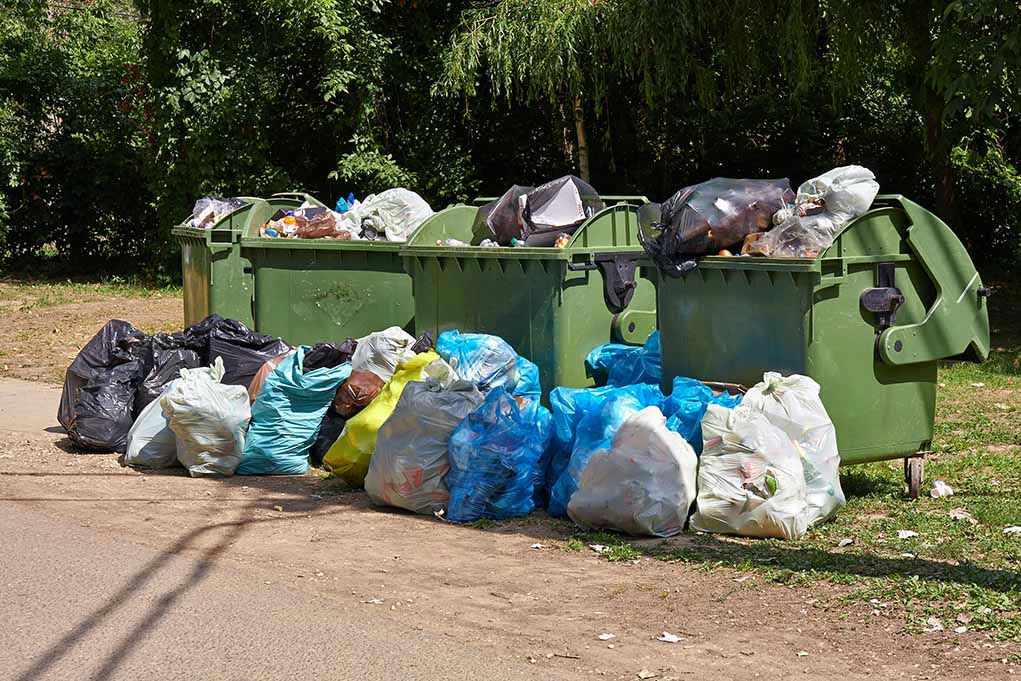
Danish scientists have cracked the code on turning America’s plastic waste crisis into a powerful weapon against climate change, transforming discarded bottles into materials that actively devour carbon dioxide from the atmosphere.
Story Highlights
- University of Copenhagen chemists convert PET plastic waste into BAETA, a high-efficiency CO₂ capture material
- Revolutionary process operates at room temperature, making it energy-efficient and economically scalable
- Dual environmental solution tackles both plastic pollution and greenhouse gas reduction simultaneously
- Technology ready for industrial scale-up after successful laboratory validation in September 2025
Breaking the Cycle of Environmental Destruction
Chemists at the University of Copenhagen have achieved what many thought impossible: transforming polyethylene terephthalate (PET) plastic waste into BAETA, a material that captures carbon dioxide with remarkable efficiency. This breakthrough addresses two environmental crises plaguing American communities—mountains of plastic waste choking our landfills and rising atmospheric CO₂ levels threatening our economic prosperity. The innovation represents genuine American ingenuity applied to practical problem-solving, offering hope against the failed environmental policies of previous administrations.
The BAETA material operates across temperatures from room temperature to 150°C, making it perfect for capturing emissions from industrial exhaust streams. Unlike energy-hungry carbon capture technologies promoted by globalist climate initiatives, this process works at ambient temperatures, reducing operational costs and energy requirements. Lead researcher Margarita Poderyte explains their approach: “We solve a problem without creating a new one. By turning waste into a raw material that can actively reduce greenhouse gases, we make an environmental issue part of the solution to the climate crisis.”
Economic Opportunity from Innovation
The technology creates genuine economic value from waste streams, potentially revolutionizing America’s approach to both recycling and emissions control. With over 80 million tons of PET produced globally each year, much ending up in American landfills due to contamination and degradation limitations, this breakthrough transforms liability into asset. Industries with significant CO₂ emissions—power plants, manufacturing facilities, and heavy industry—could benefit from cost-effective carbon capture while addressing regulatory requirements through market-driven solutions rather than government mandates.
The ambient temperature operation gives BAETA a significant competitive advantage over existing carbon capture technologies that require massive energy inputs. This efficiency translates directly into lower costs for American businesses and reduced dependence on foreign energy sources. The researchers are actively seeking investment partnerships for industrial-scale deployment, positioning this technology to strengthen American manufacturing competitiveness while addressing environmental concerns through innovation rather than regulation.
Scaling American Innovation
Laboratory validation completed in September 2025 proves the technology’s readiness for commercial deployment. The research team published findings in Science Advances, demonstrating BAETA’s efficiency rivals or exceeds existing carbon capture materials while providing the added benefit of waste reduction. Unlike top-down government programs that redistribute wealth without solving problems, this breakthrough creates genuine value through technological advancement and entrepreneurial application.
Scientists made plastic that eats carbon.
Chemists at the University of Copenhagen have turned waste plastic (like bottles and textiles) into a carbon-capturing material called BAETA. Made from PET plastic, BAETA can soak up CO₂ efficiently, then release it when heated—meaning… pic.twitter.com/s4GlxikqKJ
— PastToFuture🚀 (@PastTo_Future) September 6, 2025
The transition from laboratory to industrial scale represents the critical next phase, requiring private investment and industry partnerships rather than taxpayer-funded subsidies. This approach aligns with conservative principles of market-driven environmental solutions that create jobs and economic growth. Success could establish American leadership in practical climate technology while reducing our dependence on foreign waste management solutions and expensive imported carbon capture systems.
Sources:
Scientists Convert Plastic Waste into High-Performance CO₂ Capture Materials
Chemists develop innovative method to convert plastic waste into sustainable CO₂ capture solution
Scientists made plastic that eats carbon
Plastic waste converted into material for CO₂ capture
Repurposing polyethylene terephthalate plastic waste to CO₂ sorbent BAETA














